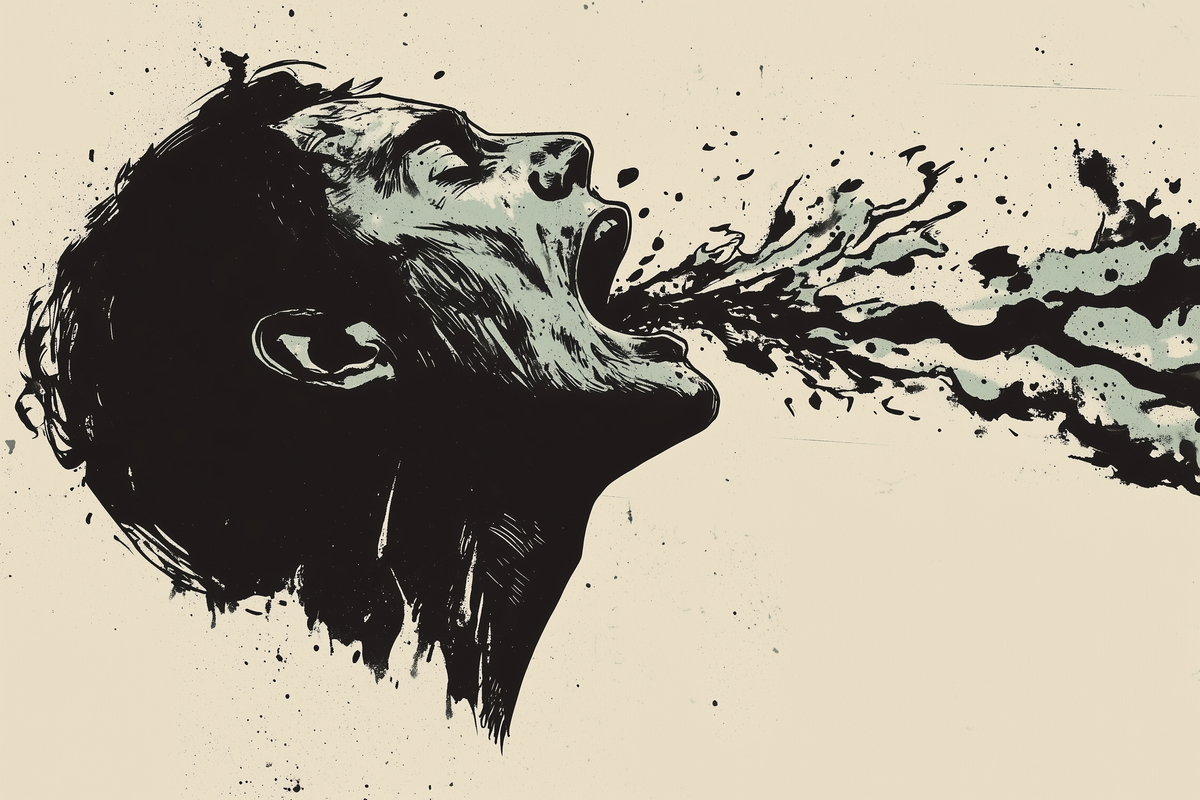Breathless

The sand clings to her heels, wet and heavy, dragging her steps like wet cement. She hates it. Forty-one years, and she knows exactly why her knees ache this way, why her lower back burns every time she stands too straight. She could name the parts—cartilage, bone, the inevitable grind of time—but none of that matters. Pain doesn’t care what it’s called.
The horizon stretches forever, gold leaking into blue, the ocean whispering in lazy waves. It’s a picture-perfect evening, if you’re the kind of person who likes pictures. She’s not. Not anymore. The air smells like salt and rot, like the underside of something dying, and her husband’s uneven shuffle scratches at her nerves. He walks like a man who doesn’t know how to stop moving, dragging one foot just slightly behind the other, like it’s a chore to keep up with her.
The silence between them is old, worn down to a dull hum. Not sharp enough to hurt, not soft enough to ignore. It’s the kind of silence that’s just there, like an ache you’ve lived with so long you forget it’s not normal. Forty-one years does that to people. It stitches them together until even their quiet is shared.
Then the shout cuts through the waves. Thin, desperate. She stops mid-step, one foot sinking into the cold sand, water pooling around her ankle like ice. Her husband keeps walking, oblivious, until she grabs his wrist.
“Listen.”
They turn together, their bodies slow, creaking, her hand still on his arm. A man and a woman, far down the beach, tiny and frantic against the endless horizon. The man’s carrying something—or someone. A small, limp shape, dangling like a broken doll in his arms.
Her stomach flips. It always does. She doesn’t speak, doesn’t think. She runs.
The sand sucks at her feet, every step a fight. Her knees scream, and her lungs feel too small, but she runs anyway. Behind her, her husband follows, slower, heavier, muttering something she can’t hear.
The man collapses to his knees before she gets there, cradling the boy’s limp body in the surf. The woman is screaming, her voice broken, splintering into pieces that don’t sound like words. The boy is pale, his lips blue, foam crusting at the corners of his mouth.
No breath. No movement.
She drops to her knees, cold water soaking through her jeans. Her hands move without thinking, tilting the boy’s head back, opening his airway. The rhythm is automatic, carved into her bones after decades of doing this.
“Call 911,” she snaps, sharp as breaking glass. Her husband fumbles for his phone. The young man is shaking, his hands fluttering uselessly, his face crumpled. The young woman clutches at him, sobbing, a sound that feels like it could shatter.
“It’s okay,” she says. Her voice is calm, steady, the same voice she’s used on a hundred parents, a thousand. It doesn’t crack, doesn’t falter. “We’ve got him.”
She bends over the boy, seals her mouth over his, and breathes. His chest rises, cold and stiff under her hands. She breathes again, the salt stinging her lips, and watches her own breath seep back out of him, slow and lifeless. Her hands press into his tiny chest, finding the rhythm that keeps time with her heart.
One, two, three.
The ocean whispers behind her. The woman screams again, and it feels like something breaking inside her ears.
Her husband kneels beside her, his face pale, his breathing sharp and shallow. He doesn’t speak. Just takes over the compressions when she stops to breathe. The two of them, moving in sync.
The air tastes like salt.
“It’s okay,” she says again, softer now.
